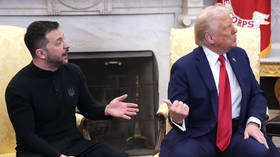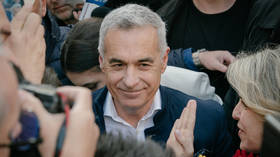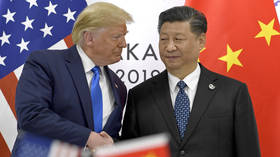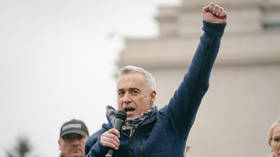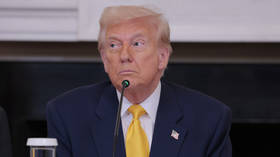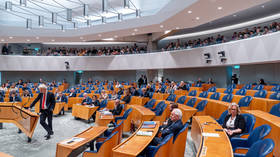Hong Kong’s ‘Semi-Autonomous Democracy’ is still a leap forward
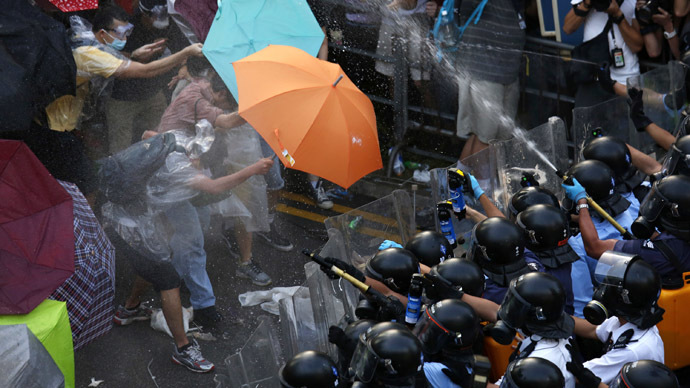
As the Occupy Central movement cries foul over electoral regulations imposed by Beijing, few acknowledge that the proposed reforms are far more representative than any previous electoral mechanism in Hong Kong’s history.
Tens of thousands of protestors have taken to the streets of Hong Kong in recent days, defying calls to disperse demanding the Chinese government agrees to allow residents to freely elect the city’s next leader.
The student-led demonstrations have sparked the worst unrest seen in the Asian financial hub since the 1997 handover which saw China regain sovereignty over the former British colony.
Demonstrations have expanded throughout the city calling for the resignation of chief executive Leung Chun-ying, bringing shopping and business districts to a standstill. Members of the protest movement, known as Occupy Central with Love and Peace, attempted to invade the city's main government compound, prompting riot police to disperse crowds with tear gas and pepper spray.
The conduct of security forces galvanized sympathy for the movement, causing its ranks to swell over the weekend as the value of the Hong Kong dollar tumbled to a six-month low. Student leaders have vowed not to attend classes indefinitely until the city’s top leader steps down, while activists set up barricades and vow to continue their civil disobedience campaign.
Hong Kong operates with a high degree of autonomy under the framework of the “one country, two systems” model, which grants residents of the semi-autonomous island a higher degree of civil liberties, press freedom and political expression than citizens in mainland China. Activists believe the government in Beijing is intent on tightening control over the area to undermine existing freedoms.
China’s National People's Congress (NPC), the country’s highest lawmaking body, unveiled a series of stipulations in August pertaining to the 2017 polls that will elect the island’s next chief executive. It requires all candidates to be vetted before a nominating committee controlled by Beijing to ensure Hong Kong’s political stability.
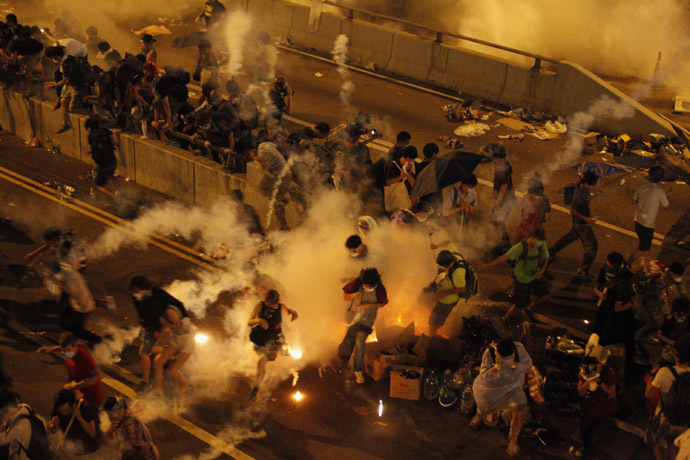
These provisions have enraged pro-democracy advocates who fear that candidates deemed unsuitable by the central government would be barred from standing in elections. The protestors appear to have placed a greater priority on the demand that the incumbent chief executive resign, realizing that coaxing the NPC to reverse its decision is an unlikely outcome.
Demonstrators and various Western commentators have accused Beijing of infringing upon previous agreements to allow universal suffrage. Some have raised concerns that China had breached the framework of the 1984 handover agreement, an international treaty signed by Beijing and London. The situation isn’t so black and white. The NPC did indeed agree to allow universal suffrage for chief executive elections in 2017 at the earliest, with Hong Kong's Legislative Council elected by universal suffrage in 2020.
It must be noted that the interpretation of universal suffrage in the city’s Basic Law, which has served as Hong Kong’s constitution since 1997, stipulates the following: “The ultimate aim is the selection of the Chief Executive by universal suffrage upon nomination by a broadly representative nominating committee in accordance with democratic procedures.”
This effectively means that China cannot be accused of reneging on its commitments to allow Hong Kong residents full universal suffrage to vote because universal suffrage – as defined by the territory’s own laws – always required that candidates be vetted by a nominating committee. The Sino-British joint declaration of 1984 that paved the way for the handover made no mention of universal suffrage.
While activists may not be happy about accepting these legal stipulations, it should be acknowledged that the planned 2017 reforms would still allow the population to directly elect the chief executive through one-person-one-vote for the first time in history. Direct elections were never held at any point during the British colonial period, while a 1,200-member electoral college – made up of elite figures and tycoons – currently elects the chief executive.
Although there may be an unsavory caveat in the electoral process that requires a nominating committee to approve candidates, the new system is a far more democratic process than any previously practiced in Hong Kong’s history. Popular elections are undoubtedly a move toward a more representative framework.
It should be noted that no other part of China has been granted these kind of voting rights. Suffice it to say, an unreasonably high nomination threshold for election candidates wouldn’t be fair either. Beijing can diffuse tensions by setting broad standards for the nominating committee that wouldn’t rule out allowing moderate pan-democrats to stand in elections.
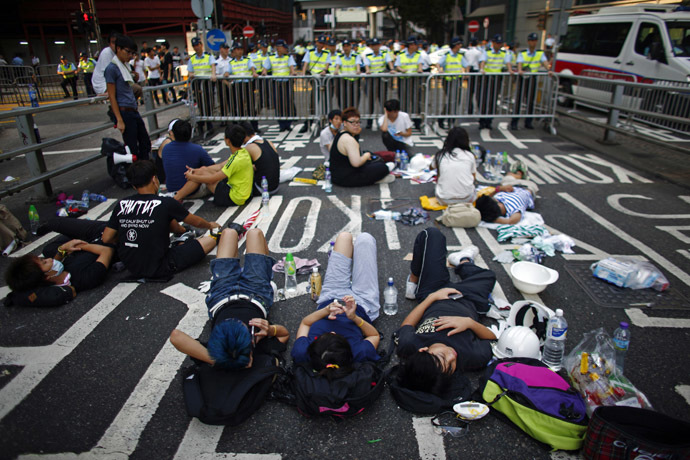
Statements made by Chinese officials indicate that national security factors have been key in shaping electoral reform in Hong Kong. Their concerns are that western countries would take advantage of any liberal legislation to help support parties and individuals in Hong Kong that would antagonize Beijing.
According to WikiLeaks, foreign intelligence agencies have a freer hand to operate in Hong Kong, while opposition figures regularly meet Western diplomats.
Martin Lee and Anson Chan, leaders of the opposition Democratic Party of Hong Kong, recently visited officials in Washington and London to request support from Western governments, which have championed the pro-democracy movement. Chinese state-media has accused those countries of meddling in its internal affairs by initiating inquiries into Beijing’s record of promoting electoral freedoms in Hong Kong.
The National Endowment for Democracy (NED), the notorious US government funded-foundation known for nurturing protest movements in Eastern Europe and Latin America, contributed nearly half-a-million dollars to programs intended to “develop the capacity of citizens - particularly university students - to more effectively participate in the public debate on political reform… allowing students and citizens to explore possible reforms leading to universal suffrage.” These programs are intended to mobilize popular discontent into demonstrations of the sort Hong Kong is now experiencing.
The Chinese media also reported that Joshua Wong the 17 year-old student leader who was arrested for directing protestors to storm the Hong Kong government headquarters, received donations and frequently met with US consulate personnel over the past three years. Jimmy Lai, the owner of the anti-Beijing Apple Daily newspapers in Taiwan and Hong Kong, also received funding from the US Republican Party for the purpose of aiding the Occupy Central movement.
Activists will write off Western support for pro-democracy movements in China as pro-Beijing spin, accusing the central government of using foreigners as scapegoats to avoid the wider issue of full universal suffrage, but the concerns of the Chinese government are legitimate and valid in any case. The state-owned Global Times newspaper cautioned against foreign support for the protests, saying, “Hong Kong is not Ukraine.”
It should be stressed that this movement should not be denied agency if it did receive foreign support. The protestors are well-meaning and non-violent youngsters who want more political representation. Action taken by security forces has been relatively restrained in contrast to crowd control methods in other countries, but the police should not have resorted to heavy-handed tactics that have so far spurred on greater public support for the movement.
While the pro-democracy movement commands a high degree of public support, Hong Kong society is highly polarized. Tens of thousands have also protested against the Occupy Central movement, on the basis that mass demonstrations will generate social discord and instability. There is no indication that the pro-democracy movement represents the majority opinion of Hong Kong residents.
Occupy Central activists held an unofficial referendum that saw the majority of 800,000 people support reform packages that would allow public nomination. The Alliance for Peace and Democracy, backed by pro-Beijing groups, collected close to 1.5 million signatures of residents opposed to the Occupy Central movement. The divide speaks volumes of the generation gap facing residents, as the majority view Beijing as a political anchor and guarantor of prosperity.
The pro-democracy movement should acknowledge that the proposed reforms are a shift in the right direction. Activists should know when to compromise and call attention to issues that will plague the city irrespective of whether democracy is achieved: Hong Kong’s obscene income disparity, the widest in Asia; the influence of wealthy tycoons and property developers who set pricing through short supplying; protecting the region’s unique historical and cultural identity. Democracy will never be an end-all solution.
The statements, views and opinions expressed in this column are solely those of the author and do not necessarily represent those of RT.
The statements, views and opinions expressed in this column are solely those of the author and do not necessarily represent those of RT.




